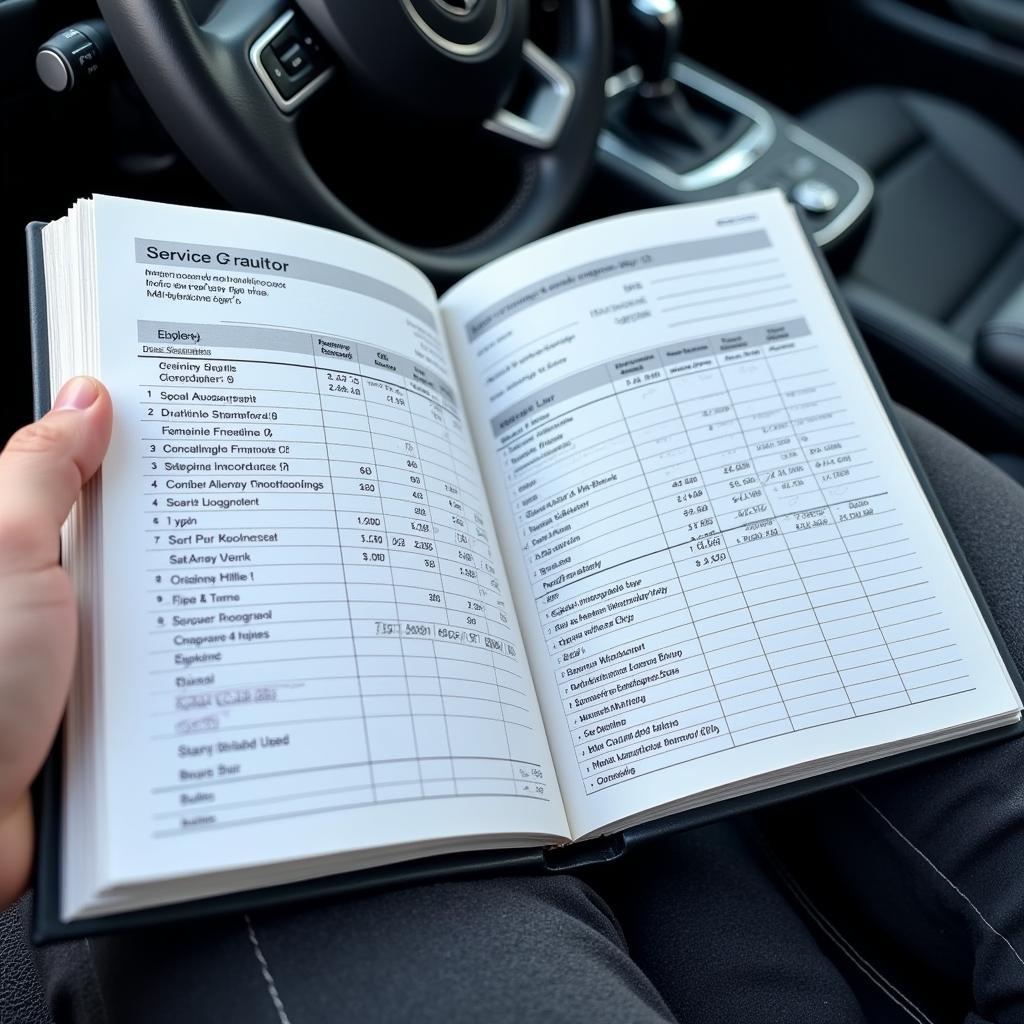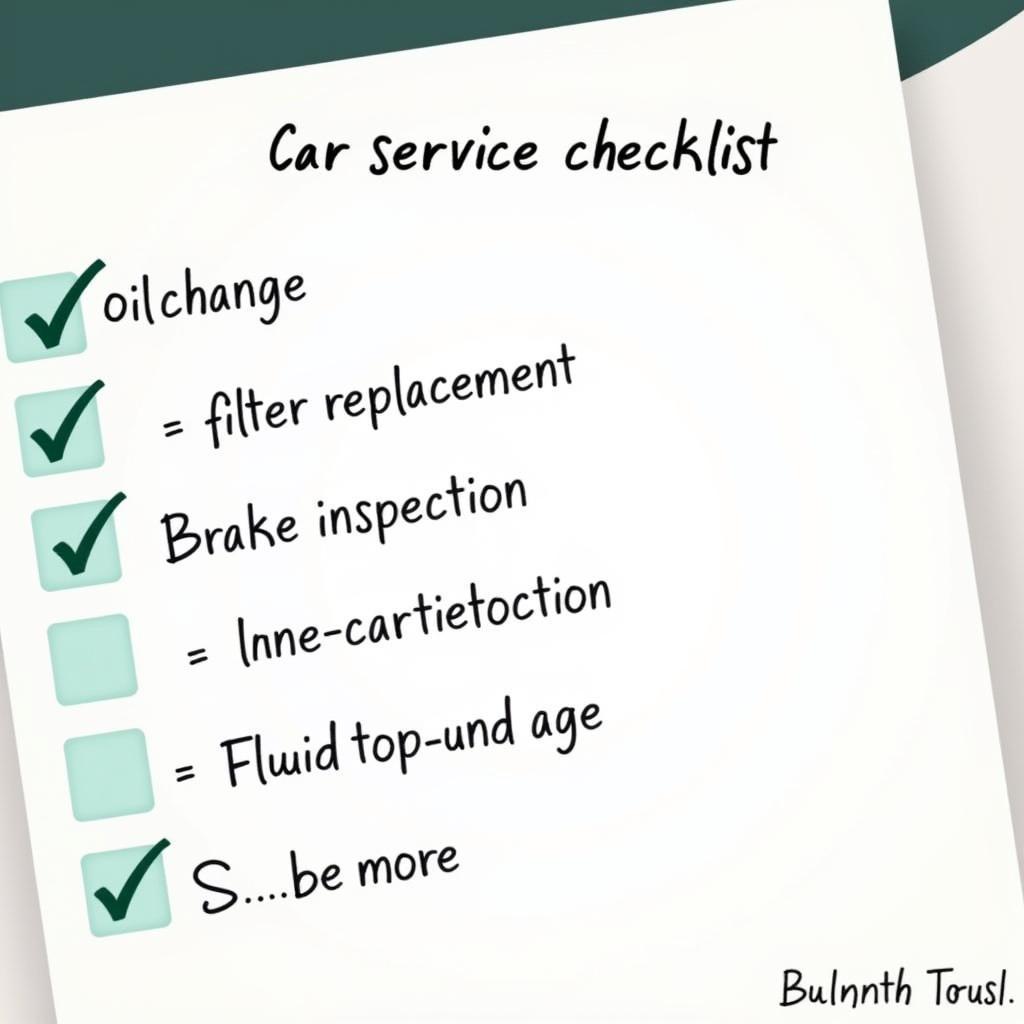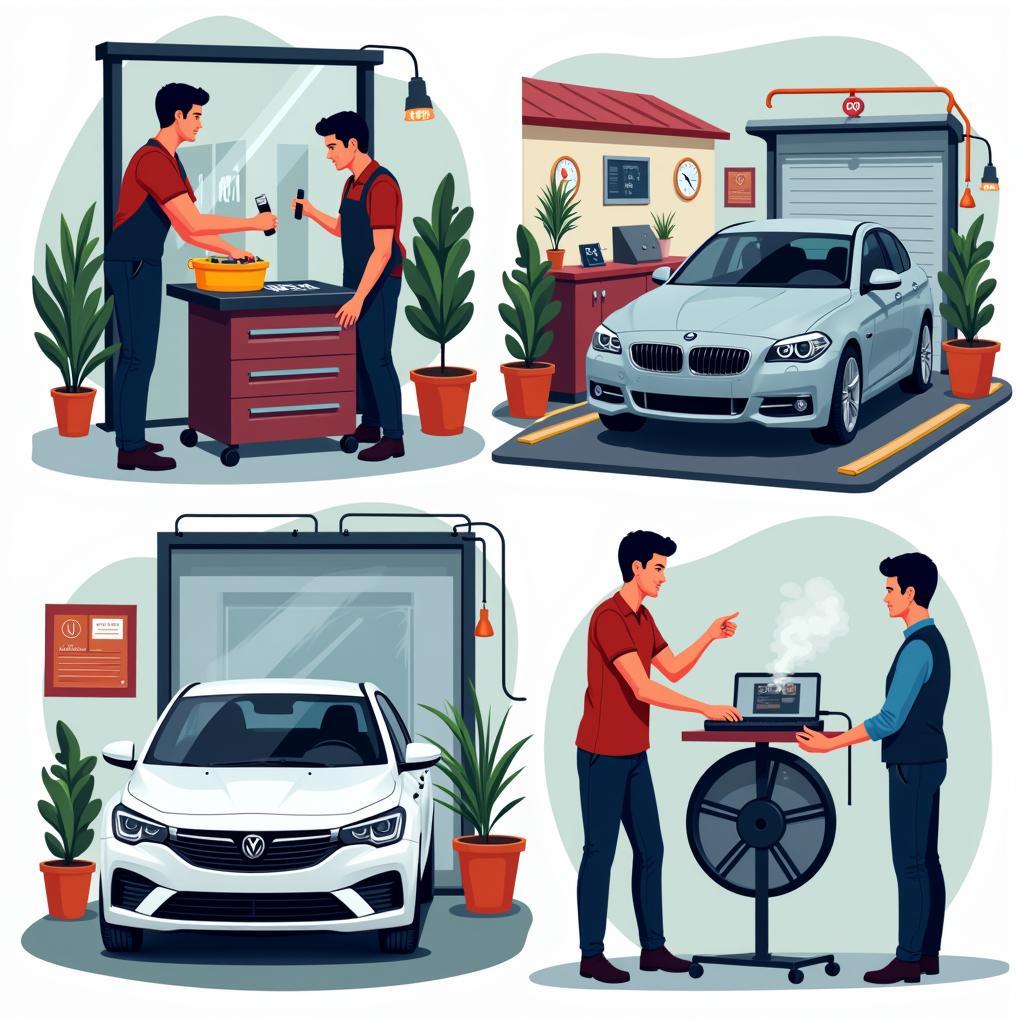Does Servicing Your Own Car Void Warranty?
If you’re a car enthusiast who enjoys getting your hands dirty, you might have wondered, “Does Servicing Your Own Car Void Warranty?” It’s a valid question, especially with the rising costs of professional car maintenance. While tackling car repairs yourself can be tempting, there are some crucial factors to consider before grabbing your wrench.
Understanding Your Car Warranty
Before diving into the DIY servicing aspect, it’s essential to understand the ins and outs of your car warranty. A car warranty is essentially a contract between you and the manufacturer, promising to cover certain repairs for a specific period or mileage.
This warranty protects you from faulty parts or workmanship and can save you significant money on costly repairs. However, warranties come with conditions. Failing to meet these conditions, such as adhering to the manufacturer’s recommended service schedule, can void your warranty.
The Magnuson-Moss Warranty Act
In the United States, the Magnuson-Moss Warranty Act plays a vital role in protecting consumers’ rights regarding warranties. This federal law clarifies that manufacturers cannot void your warranty simply because you had your car serviced by an independent mechanic or performed the maintenance yourself.
However, the burden of proof lies with the manufacturer. Suppose they deny a warranty claim arguing that your DIY service caused the issue. In that case, they must provide sufficient evidence to support their claim.
Maintaining Detailed Records
“Meticulous record-keeping is crucial for car owners who perform their own servicing,” says John Miller, a seasoned automotive engineer with over 20 years of experience. “It’s not enough to just do the work; you need documented proof.”
 Car maintenance logbook with service records
Car maintenance logbook with service records
Keep detailed records of all maintenance and repairs you perform on your vehicle. This includes dates, mileage, the type of service performed, and receipts for parts and fluids used. Having this documentation can be invaluable if a warranty dispute arises.
Using Quality Parts and Fluids
While saving money on parts might be tempting, using aftermarket components or fluids that don’t meet the manufacturer’s specifications can void your warranty. Stick to original equipment manufacturer (OEM) parts or high-quality alternatives that meet the required specifications. Ensure you retain all receipts as proof of purchase and usage.
Regular Servicing Still Matters
Even if you’re comfortable performing basic maintenance, some tasks are best left to professionals, especially those requiring specialized tools or knowledge. Complex repairs, such as those involving the engine or transmission, should always be handled by certified technicians.
how often should you have a new car serviced
Remember, regular servicing by a certified mechanic can help identify potential problems early on, preventing more significant issues down the line.
Conclusion
So, does servicing your own car void warranty? The answer isn’t a simple yes or no. While you have the right to service your vehicle yourself, it’s crucial to follow the manufacturer’s guidelines, use appropriate parts, and keep thorough records.
Remember, a well-maintained vehicle is crucial for safety and optimal performance. If you’re ever unsure about a repair or maintenance task, don’t hesitate to seek professional help.
FAQs
1. Can I use aftermarket parts and still maintain my warranty?
While it’s not recommended, you can use aftermarket parts as long as they meet the manufacturer’s specifications. Ensure you retain receipts and documentation as proof of quality.
2. Is it necessary to keep all my service receipts?
Yes, keeping all service receipts, even for simple oil changes, is crucial. These receipts serve as proof of regular maintenance and can be helpful in a warranty claim.
3. What should I do if my warranty claim is denied?
If your claim is denied, don’t panic. Gather all your service records and receipts and contact the manufacturer directly. If the issue persists, consider seeking legal advice.
4. Can I perform my car’s scheduled maintenance myself?
You can perform scheduled maintenance yourself, but it’s crucial to follow the manufacturer’s guidelines to the letter.
how much is the average car service and mot
5. How can I prove that a faulty part wasn’t caused by my DIY service?
Maintaining detailed records, including photographs and videos, of your work can help prove that a faulty part wasn’t a result of your service.
Common Scenarios and How to Approach Them:
Scenario 1: You replaced your car battery with a cheaper aftermarket option, and now the car’s electrical system is malfunctioning. The manufacturer might try to void the warranty claiming the aftermarket battery caused the issue.
Solution: Provide proof that the battery meets the car’s specifications and that it was installed correctly.
Scenario 2: You changed your car’s oil yourself, and now the engine light is on. The manufacturer blames your DIY oil change for potential engine damage.
Solution: Show evidence of using the recommended oil type and filter, and that the oil change procedure was followed correctly.
Looking for more car servicing advice?
Check out our other articles on:
Need personalized assistance with your car troubles?
Contact us via WhatsApp: +1(641)206-8880 or email: [email protected]. Our dedicated support team is available 24/7 to assist you.

